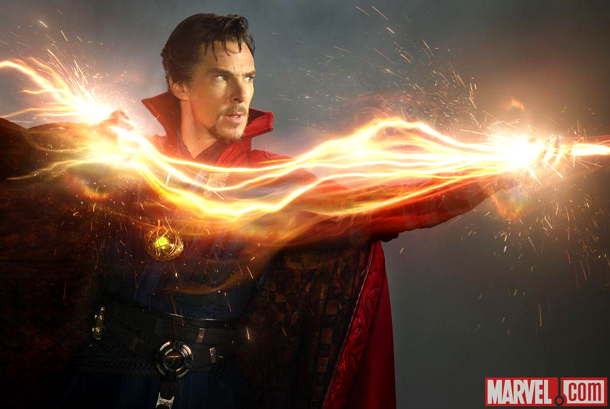 London — The screenwriter of an upcoming Hollywood blockbuster said he believes the Tibetan origins of a key character had to be changed to avoid isolating the Chinese audience.
London — The screenwriter of an upcoming Hollywood blockbuster said he believes the Tibetan origins of a key character had to be changed to avoid isolating the Chinese audience.
Doctor Strange is based on a popular comic book that follows a doctor who travels to Tibet and gains supernatural abilities from a Tibetan called the Ancient One. However in the upcoming film adaptation, released later this year, all references to Tibet have been removed. The superhero instead travels to Nepal and his mentor is played by British actress Tilda Swinton.
In an effort to justify the changes to the source material Robert Cargill, one of the film's writers, explained to film criticism website Double Toasted that the decision was made because the character presented a "cultural landmine".
"The Ancient One was a racist stereotype who comes from a region of the world that is in a very weird political place," he said. "He originates from Tibet, so if you acknowledge that Tibet is a place and that he's Tibetan, you risk alienating one billion people who think that that's bulls**t and risk the Chinese government going, 'Hey, you know one of the biggest film-watching countries in the world? We're not going to show your movie because you decided to get political'.
"The only way this character could be more awkward is if he had been made back in the thirties and instead of going to the Orient went to Palestine and learned from a Palestinian master. That's the only way this could be any uglier than this one now."
Cargill's comments sparked controversy online and many people claimed that the writer hadn't realised that by changing the roots of the character and erasing references to Tibet it meant the film is being political for economic reasons, and it is siding with China.
Cargill later said his comments were his own personal views and did not reflect the view of Marvel Studios, the company behind the film. He also said he had no involvement in the film's casting process.
Marvel also responded by highlighting it's record on diversity and saying that Swinton was cast because she will be playing a Celtic iteration of the Ancient One character. Their defence did not directly address the questions raised about Tibet.
While the writer's comments were not confirmed by the studio they do show how far attitudes toward Tibet have shifted in Hollywood. Being reluctant to acknowledge the nation's existence in case, according Cargill, it would get "political" is a dramatic contrast to nineteen years ago when Hollywood released two big budget epics that tackled the Chinese occupation and highlighted its cultural implications, the Golden Globe-nominated Seven Years in Tibet and Oscar-nominated Kundun.
Alistair Currie, campaigns and media manager for Free Tibet spoke to TPI about this issue and said the act of self-censorship by Marvel appeared "misguided" and has harmed to the studio's reputation.
"China does not pretend Tibet doesn't exist and having a Tibetan character wouldn't necessarily have offended the Chinese authorities. It's deeply disappointing that in his comments, however, Robert Cargill seemed to see this as a disagreement on which it was best to be neutral, rather than an injustice on which one should take a side. That is playing into China's hands."
Currie added that Marvel's decision might also be a reflection of how challenging the commercial filmmaking environment can be for directors with commitments to controversial projects. "Of course, a country or tradition is almost always best represented by its own people but an outsider's perspective can sometimes be illuminating too. Even a flawed film by a non-Tibetan could have a positive impact if it addressed the political issues with sensitivity and courage and was seen by enough people. As things stand, unfortunately, independent films often struggle to find a market and Tibetan films have difficulty reaching wider audiences. They deserve to and we hope that will change."


![Tibet has a rich history as a sovereign nation until the 1950s when it was invaded by China. [Photo: File]](/images/stories/Pics-2024/March/Tibet-Nation-1940s.jpg#joomlaImage://local-images/stories/Pics-2024/March/Tibet-Nation-1940s.jpg?width=1489&height=878)















